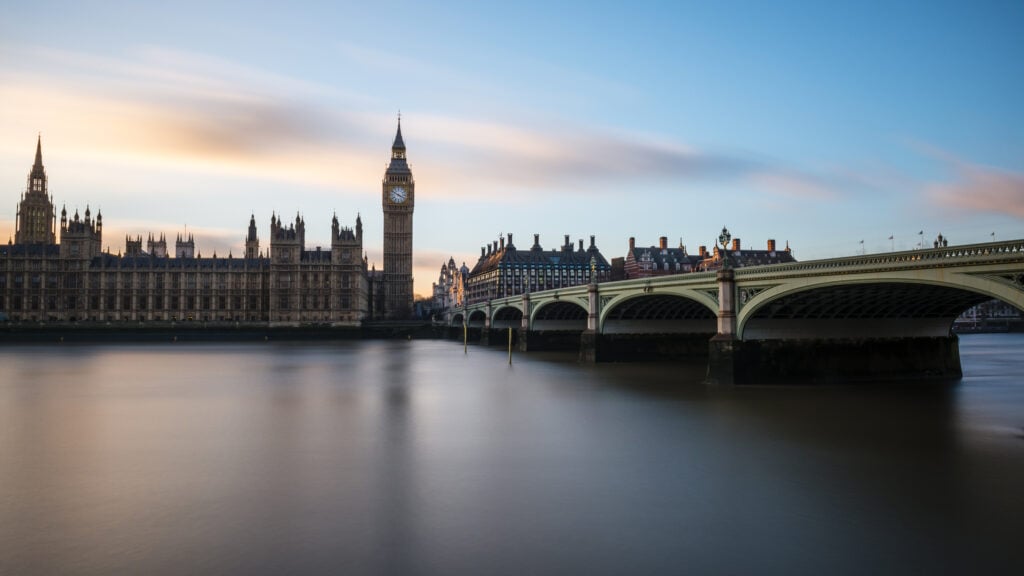In an “unprecedented move” the National Health Service (NHS) has called on the government to limit energy bill increases and provide further support to households in need, in order to avoid a public health emergency.
In a letter addressing the cost-of-living crisis, NHS Confederation chief executive Matthew Taylor and chair Lord Victor Adebowale called on the Chancellor Nadhim Zahawi to announce additional and targeted measures ahead of the energy price cap for the October-December period being announced on 26 August.
“The NHS in England spends £1.3 billion each year treating preventable conditions caused by cold, damp homes,” the letter states.
“Fuel poverty, and the health inequalities that it causes, is not inevitable.The mental and physical illnesses caused by living in cold, damp homes are preventable by support from the government that shields households from spikes in fuel prices”.
On Friday, the price cap is expected to increase by up to 82% from its already record high level – having increased by 54% in April 2022 for the summer period.
As such, there are growing calls for government action to minimise the suffering such an increase is expected to create. Cornwall Insight recently called on government to review its support package for example, after announcing its price cap forecasts have now passed the £4,200 mark for the Q1 2023 period and nearly £3,600 for the Q4 2022 period.
With the sharp increase in energy prices, many members of the British public may be forced to compromise over the winter months to cater for this price rise, choosing between food and heating for example.
According to the End Fuel Poverty Coalition last week, 9.2 million households are now estimated to be in fuel poverty from 1 October, which could then rise to 10.5 million from January 2023.
Living in fuel poverty leads to a “drastic uptick” in respiratory conditions, undernutrition and even hospital admissions in children, noted the NHS Confederation. While vulnerable older people living in such conditions are at particular risk of heart attacks, strokes and falls.
Such an increase in fuel poverty therefore will likely increase the number of deaths annually associated with cold homes, which is already estimated to be around 10,000 a year, according to the NHS.
“There is a strong correlation between rising energy prices and the health and well-being of the communities we serve and belong to. In turn this has a significant bearing on the increased demands placed on our health services,” said Beatrice Fraenkel, chair of Mersey Care NHS Foundation trust.
“If people are unable to afford to adequately heat their homes or eat well, they are increasingly likely to fall ill and require the care of the NHS which is already under significant pressure. Whilst we as employers are doing all we can to mitigate against the situation this crisis is proving a real challenge for our staff personally and professionally.”
The open letter highlights the severe health implications for the general public of cold homes and poor diets, and additionally the strain the increased levels of poor health could have on an already stretched NHS system following the covid pandemic.
“The country is facing a humanitarian crisis,” said Taylor.
“Many people could face the awful choice between skipping meals to heat their homes and having to live in cold, damp and very unpleasant conditions. This in turn could lead to outbreaks of illness and sickness around the country and widen health inequalities, worsen children’s life chances and leave an indelible scar on local communities.
“These outbreaks will strike just as the NHS is likely to experience the most difficult winter on record. NHS leaders have made this unprecedented intervention as they know that fuel poverty will inevitably lead to significant extra demand on what are already very fragile services.”
According to the letter, the £400 support announced by then-Chancellor Rishi Sunak in May for each household – which forms the bulk of the government’s current support for bills and will be paid over six months from October – will “fall far short for those most in need”, even taking into account other measures such as one-off payments for recipients of Universal Credit, disability benefits and the winter fuel allowance, also announced.
Without further measures, and even with taking into account the £400 support, fuel poverty rates are still expected to reach 50% of UK households from October and 55% from January.
“This unprecedented move from health and care leaders in England hammers home the fact that the rising cost of living is a national emergency,” said Katie Schmuecker, principal policy advisor at the Joseph Rowntree Foundation.
“The rising price of essentials are a huge threat to health. It’s morally indefensible that already people in some parts of the UK die years earlier than they should, and we cannot allow this injustice to be made worse this winter. Not being able to afford a warm home and healthy food causes untold stress and anxiety. It also affects physical health due to a lack of nutrition and infectious diseases made worse by the cold.”
She added that as of May, over seven million households were already going without one essential like food. The number of people going without common necessities will become “an unmanageable risk if nothing is done.”
Cornwall Insight raised its prediction for the October Default Tariff Price Cap by over £200 at the beginning of August due to the continued volatility seen in the international gas market and changes to the calculation methodology set by Ofgem, with it now sitting at £3,582 for the three final months of 2022.






